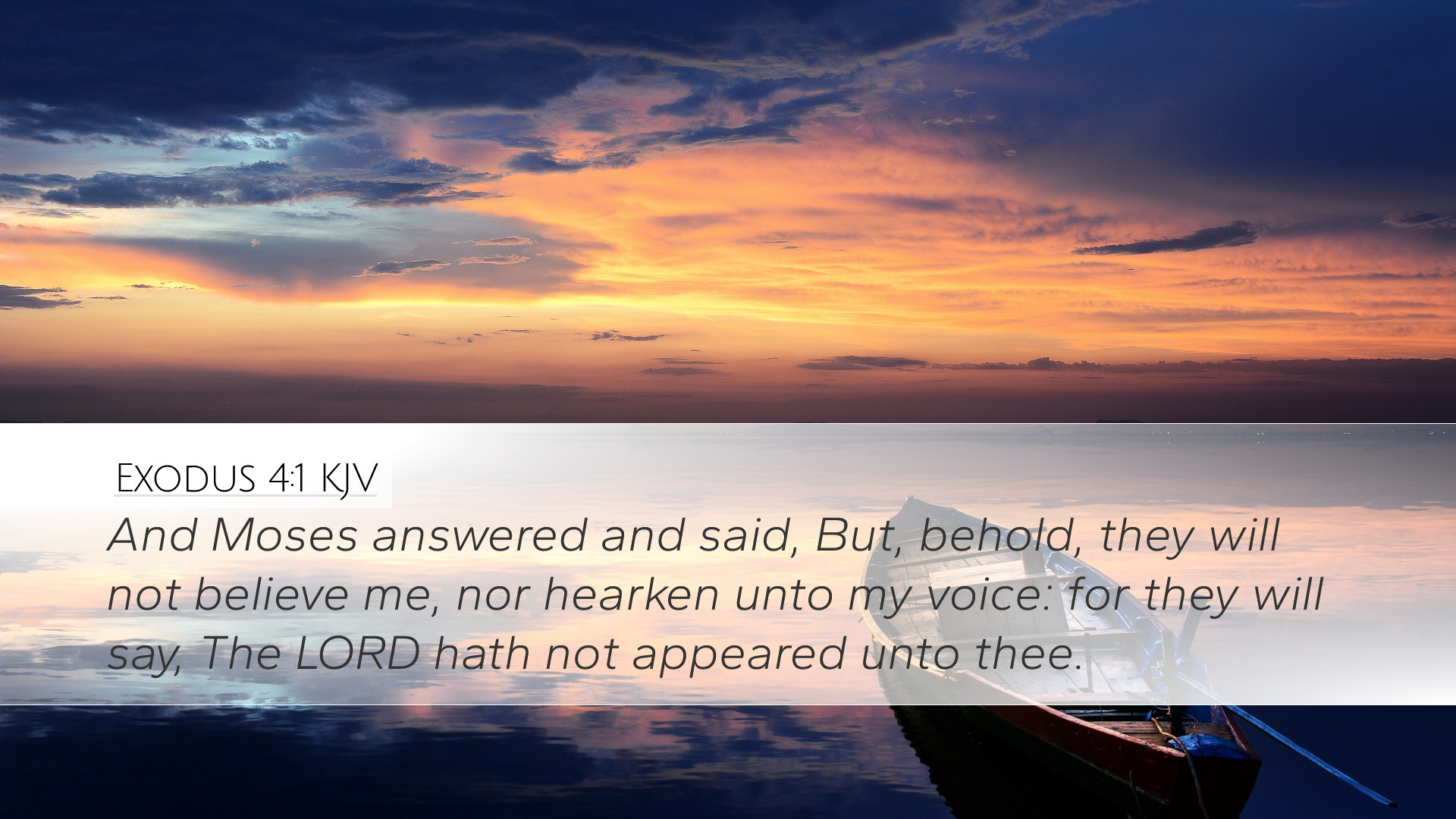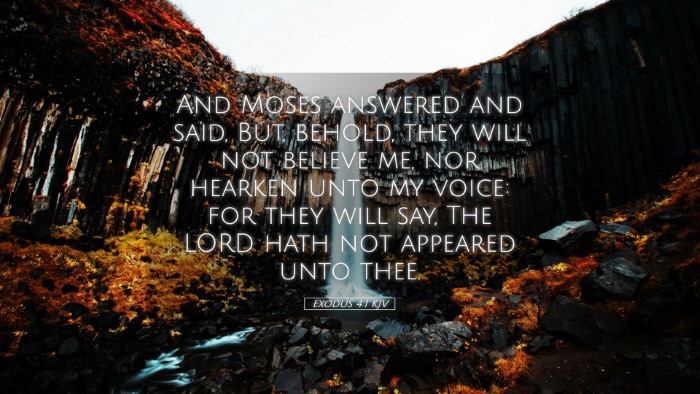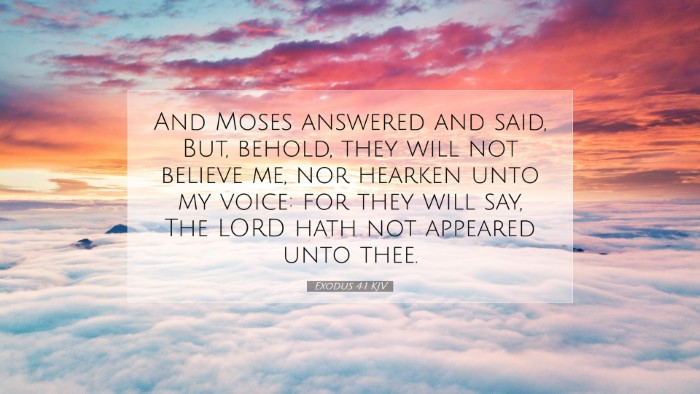Exodus 4:1 - Commentary Overview
Exodus 4:1 states: "And Moses answered and said, But, behold, they will not believe me, nor hearken unto my voice: for they will say, The Lord hath not appeared unto thee." This verse captures the moment when Moses expresses his hesitation and doubt about his calling to lead the Israelites out of Egypt. It reflects significant themes of faith, divine commission, and human resistance that resonate throughout the entirety of Scripture.
Contextual Analysis
The context of Exodus 4:1 is crucial for understanding Moses’ reluctance. Prior to this verse, God has revealed His plan to Moses through the burning bush (Exodus 3), where God commissions Moses to confront Pharaoh and lead the Israelites to freedom. Despite this divine calling, Moses raises concerns regarding the validity of his mission.
Analysis from Public Domain Commentaries
Insights from Matthew Henry
Matthew Henry emphasizes the significance of Moses' doubts. He points out that Moses’ skepticism is rooted in a realistic understanding of the situation. The Israelites, who had suffered under harsh oppression, might be disinclined to believe someone claiming divine support after years of enslavement. Henry notes, "Moses feared that the people would not credit him, believing indeed that God had sent him, nor would they heed his message without visible proof." This highlights the need for God to provide Moses with signs to reinforce his credibility.
Insights from Albert Barnes
Albert Barnes provides a detailed exploration of the implications of Moses’ concern. He points out that Moses’ reply demonstrates a common human reaction to fear and doubt when faced with a significant task. Barnes states, "This answer contains an acknowledgment of the difficulty that Moses anticipated in his mission and a questioning of the divine empowerment given to him." Moses’ initial reluctance serves as a precursor to the reassurance that God provides, reminding pastors and students that questioning can be a part of faith development.
Insights from Adam Clarke
Adam Clarke expands on the possible reasons behind the skepticism of the Israelites. He postulates that the long period of oppression may have led to a spiritual and psychological numbness among the people. Clarke writes, "The disheartened condition of the Israelites makes them susceptible to disbelief, having lost hope through prolonged suffering." This commentary invites scholars to reflect on the human condition and the barriers we face in faith when it comes to divine promises.
Theological Implications
Exodus 4:1 raises profound theological implications regarding belief, doubt, and obedience. As Moses grapples with his commission, it speaks to the core of human experience—our struggles with faith in the face of challenges. The passage reminds us that divine calling does not eliminate human reluctance, and that God often addresses these doubts with affirmation, signs, and miraculous validation of His power.
Pastoral Reflections
For pastors, this verse serves as a reminder that doubt can plague even the most faithful leaders. It encourages leaders to confront their fears and seek God's assurance. The pastoral application revolves around understanding that God meets individuals in their places of uncertainty, providing them with the wisdom and strength needed to fulfill their ministries.
Concluding Thoughts
In conclusion, Exodus 4:1 illustrates a pivotal moment in the narrative of Moses, embodying the universal struggle of belief against doubt. The insights gleaned from public domain commentaries by Matthew Henry, Albert Barnes, and Adam Clarke offer rich material for theological reflection, helping pastors, students, and scholars grasp the complexities of faith and calling. This text ultimately reassures readers that God equips those whom He calls, even amidst their deepest fears and hesitations.


